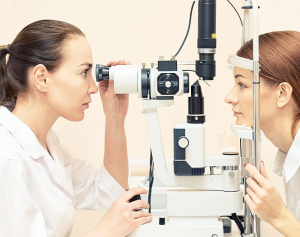
Regular eye exams stand as a cornerstone of proactive eye health and are fundamental in preserving good vision throughout one’s life. These exams extend beyond just evaluating vision; they encompass a thorough assessment of eye health, aiding in the detection of various eye conditions and underlying health issues. In this article, we delve into the essence of a comprehensive eye exam, outlining what it entails, what to anticipate during the process, and highlighting the criticality of these exams for overall well-being.
A comprehensive eye exam is a holistic evaluation of vision and eye health. It comprises a series of tests and assessments designed to measure vision clarity, eye health, and potential presence of eye conditions or diseases. Conducted by optometrists or ophthalmologists, these exams offer a comprehensive view of eye health, surpassing the determination of glasses or contact lens prescriptions.
A comprehensive eye exam comprises various components to assess different aspects of vision and eye health:
Comprehensive eye exams hold immense significance for several reasons:
Regular eye exams facilitate the early detection of eye conditions such as glaucoma, diabetic retinopathy, cataracts, and age-related macular degeneration. Early detection enhances the treatability of these conditions, potentially preventing irreversible vision loss.
Eye exams serve as an indicator of systemic health issues like diabetes, high blood pressure, and high cholesterol. The eyes offer a glimpse into one’s overall health, emphasizing the interconnectedness of eye health with general well-being.
For those requiring corrective lenses, comprehensive eye exams ensure up-to-date prescriptions, offering the clearest and most comfortable vision. This aids in daily activities and boosts quality of life.
Early identification and management of eye conditions significantly contribute to preventing or slowing down vision loss. This preservation of vision is paramount for a fulfilling and independent life.
Regular comprehensive eye exams aid in maintaining optimal eye health, ensuring that the eyes function at their best and reducing the risk of potential complications.
Comprehensive eye exams are a vital component in the journey of preserving good vision and overall health. They provide a holistic assessment of the eyes, enabling early detection of potential issues and timely intervention. Waiting for symptoms to manifest is unnecessary; regular comprehensive eye exams should be a priority to preserve vision and protect overall well-being. Your eyes deserve the best care, and comprehensive eye exams mark the initial step toward achieving just that. Stay proactive, prioritize your eye health, and embrace a life of clear vision and optimal eye well-being.